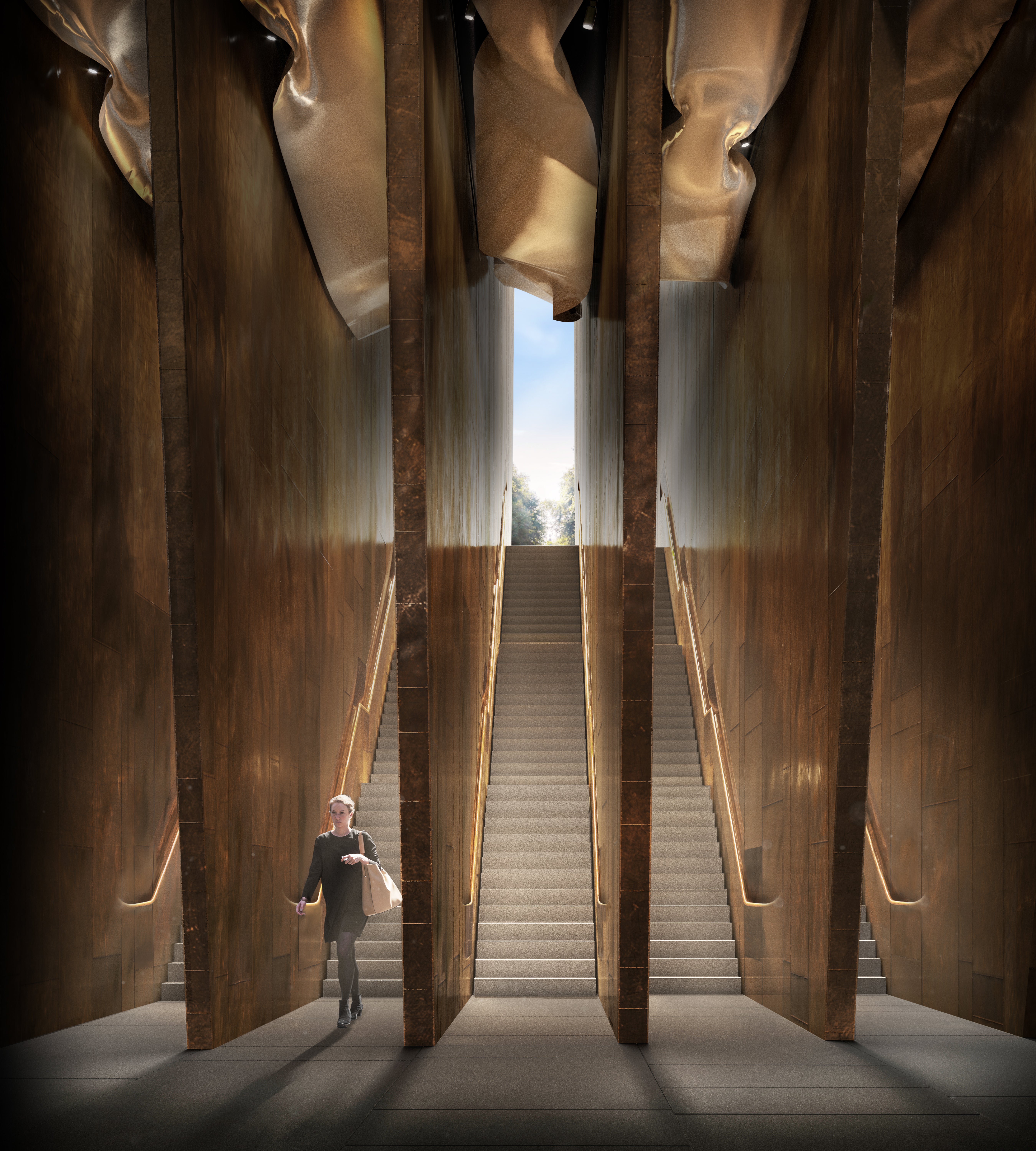Campaigners win High Court challenge over Holocaust memorial site
Mrs Justice Thornton said the trust’s case against the planning permission decision succeeded in relation to its arguments over the 1900 act.

Campaigners have won their High Court bid to quash planning permission for a new national Holocaust memorial in a park outside Parliament.
The London Historic Parks and Gardens Trust is opposed to a new UK Holocaust Memorial and Learning Centre being built in Victoria Tower Gardens, a small triangular Grade II-listed green space next to Westminster Abbey and the Palace of Westminster.
The charity brought a case against the Government, arguing the project is the “right idea, wrong place” and that the planning permission decision-making process was flawed.
At a hearing in February, the trust, whose challenge was opposed by ministers, claimed there was an “unlawful” approach to the consideration of alternative sites and highlighted the alleged impact the development might have on the heritage setting, including the Buxton Memorial which celebrates the abolition of slavery.
The trust’s lawyer, Richard Drabble QC, also said plans did not comply with a 1900 legal act affecting park land, whose requirements represented “a prohibition on using Victoria Tower Gardens as anything other than a garden open to the public”.
In a ruling issued on Friday, Mrs Justice Thornton said the trust’s case against the planning permission decision succeeded in relation to its arguments over the 1900 act.
The judge said the act “imposes an enduring obligation” to retain land “as a public garden and integral part of the existing Victoria Tower Gardens”.
She concluded: “Accordingly, the appropriate remedy is to quash the decision, so as to enable further consideration of the implications of the London County Council (Improvements) Act 1900 for the proposed scheme.”
Campaigners claimed the memorial’s proposed location risks affecting the park “irrevocably” and previously raised concerns over the alleged impact on local trees, potential flooding, and heritage monuments.
Lawyers for the Government argued that there was “no error of law” in the decision-making process and that policy had not been “misinterpreted or misapplied”.
Planning permission for the memorial was granted last July by then-house and planning minister Chris Pincher following a public inquiry and the recommendations of planning inspector David Morgan.
The decision was delegated by former communities secretary Robert Jenrick, who originally had applied for planning permission.
It came after the Government “called in” the decision in November 2019 rather than have it determined by the local authority – Westminster City Council.
In her ruling, Mrs Justice Thornton said the inspector’s assessment of alternative sites was “conducted without an appreciation of the implications” of the 1900 Act.
“The potential impediment to delivery of the scheme is a material consideration, which was not considered at the inquiry,” she added.
The judge rejected the trust’s arguments over the assessment of harm to the park’s historic environment, saying the inspector performed “his own straightforward, careful estimation and characterisation of the harm to the Buxton Memorial and, as a consequence, to the garden”.
“His analysis is a sophisticated and, at times, poetic calibration of the harm,” she said.
Mrs Justice Thornton said she refused the Government permission to appeal her judgment.
The judge highlighted that all those involved in the court case “support the principle of a compelling memorial to the victims of the Holocaust and all those persecuted by the Nazis during those years when, ‘humanity was tipped into the abyss of evil and depravity’.”
She added: “The issue dividing the parties is the proposed location of the memorial in Victoria Tower Gardens.”
Helen Monger, director of the trust, said after the ruling: “This is a major boost for the protection of London parks at a time when they’ve never been more valued by the public.
“The High Court has given the Government a welcome chance to reflect and reconsider the best site for a fitting Holocaust memorial which the UK deserves, without tearing up historic protections for our parks.”
Karen Pollock, chief executive of the Holocaust Educational Trust, said the ruling was “very disappointing news”, adding: “Holocaust survivors are elderly and their numbers are dwindling – time is of the essence.”
She said survivors hoped to see a memorial by Parliament “serving as a warning from history of what can happen when antisemitism and hate is left unchecked”.
Westminster City council is among a number of high-profile organisations and individuals to have objected to the chosen site, including former Archbishop of Canterbury Rowan Williams.
The memorial, which was due to open in 2024, aims to be the focal point for national remembrance of the six million Jewish men, women and children murdered in the Holocaust and all other victims of Nazi persecution, along with providing a place for reflection on “subsequent genocides”.
Previously released plans featured a single-storey pavilion and 23 bronze fins that would create 22 pathways into the below-ground learning centre, with the Government committing to it being free to enter “in perpetuity”.
Some £75 million of public money has already been put towards construction costs, which was due to be supplemented by £25 million from charitable donations.
A spokesperson for the Housing Minister – a position now occupied by Stuart Andrew – said: “We note today’s judgment and will consider it carefully before deciding on next steps. It would not be appropriate comment further at this stage.”
A Department for Levelling Up, Housing and Communities spokesperson said it would consider the next steps, adding: “The Government remains committed to the creation of a new national memorial commemorating the victims of the Holocaust and it is disappointing – especially for Holocaust survivors – that this judgment will delay its completion.”
